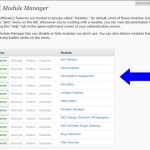There are two common dynamics that can play out when seizing the SEO window of opportunity in your market. You are either (1) the most relevant / grandfathered search result for that keyword in search engines or (2) trying to bump a page / competitor who is.
Authority transcends the measurement of content or links alone and cultivating algorithmically tangible authority in your market is an imperative blueprint for long-term search engine success.
This cat and mouse like dynamic exists regardless of the keyword and is the condition that spawns action (from those in assault mode) or recess (for those who can rest on the laurels of domain or page authority).
Creating Bigger, Better SEO Rankings
Creating rankings that can stand the test of time, virtually unshaken by competitors for months on end (with minimal effort) requires understanding how search engines weight different types of content. Getting to page one or the #1 position is challenging enough, staying there is mission-critical to yield traffic.
Rankings can be created through (1) on page optimization (2) citation and links or (3) trust and authority. Rankings created from the trust and authority are far more difficult to push aside than either 1 or 2 (on page SEO of off page SEO) alone.
Consider the authority set or (the group of documents identified as “the best set of documents on the topic”) as a finite number of critical pages. Based on the metrics that are deemed significant enough to reach the apex of a search engines algorithmic equivalent of “it factor”, it becomes exponentially more difficult to uproot those results as they are technically “grandfathered in” as the most relevant result.
Getting Past Link Dependency
Having created this “authority effect” enough times with enough keywords to know, that once your webpage or website is deemed a trusted authority on a topic, the web mimics you by pushing your content to the top 10 in minutes or on the contrary can defends it from others attempting to push you aside on auto-pilot.
If you are on the other side of the coin and making a push to displace a competitor and / or pages in the search engine result pages, your approach needs to resemble a methodical, layered approach that supersedes typical campaigns that rely on backlinks or link flow to position your website (without addressing authority).
In fact, this is the main reason why using supporting content, i.e. a blog or topical articles as a content development strategy and using multiple supporting / overlapping layers of relevance is an effective SEO tactic, a website needs to be considered an authority in order to gain weight (algorithmically as a ranking equivalent).
While those relying on backlinks or off page ranking factor are constantly in a state of flux, what remains is domain or page level authority that you can harness if you only change the way you think about and apply SEO.
Using Your Own Pages to Rank Other Pages
Instead of looking for more links, why not use your own pages to rank other pages? All time and chronology aside, if you create hundreds of staggered pages, fast forward 3 months and have a series of links built both within a site and from other sites for each of those pages theme-relevant keyword, each of those pages eventually will becomes a hub (pivotal page) that can rank 5 other pages when they bud authority.
Sites like Wikipedia started like this and you can see just how powerful and virtually unstoppable the are to search engine algorithms. The authority set is the objective and its not about links, its about the quality, candor and tone of the content and how favorably the algorithms determine your content as “the it factor”.
This logic suggests that the ultimate, genuine objective of SEO is to (a) create as many topically aligned / themed pages as possible and (b) get each page to produce more ranking factor than it consumed to get ranked and (c) stagger links from each themed page in the website to provide tiered ranking factor as you see fit for other pages.
For example, a website with authority can rank in minutes for keywords that a less relevant or less trusted site would take links, supporting articles and months to achieve. The question becomes, what is the topic (or topics) and how can you build enough trust, ranking factor and authority over time so that when you are trying to create laser-targeted rankings, you only need to create a landing page and a few internal links?
The answer, try this tool at Web Content Studio for starters for a stint of semantic structure to give Google and other search engines the semantic cues they are looking for. What happens next is reciprocity as those search engines reward you with traffic and rankings for your contribution as a benchmark in their index.
Download Your Copy of Google Authority Sets
While this is an older document from Dr. Andy Williams Ph.D, it is still relevant to this day. Do yourself a favor, find out what “Google Authority Sets” are and how you can cultivate your website to become one in your industry, market or niche.










very nice post its very useful and really help us.
good blog post! I also like the idea of making ranks, Thanks for the helping tips! It’s great to know what everyone else is doing in this circumstance.
This post really opened my eyes. I hadn’t even considered the thought that blogs would be treated any differently from regular websites when it comes to SEO. In fact, it makes perfect sense. Blogs are different and there are different (and better!) ways of determining the relevance of a blog vs. the relevance of a regular website. Thank you for laying this out in a very organized fashion. It really clicked with me.